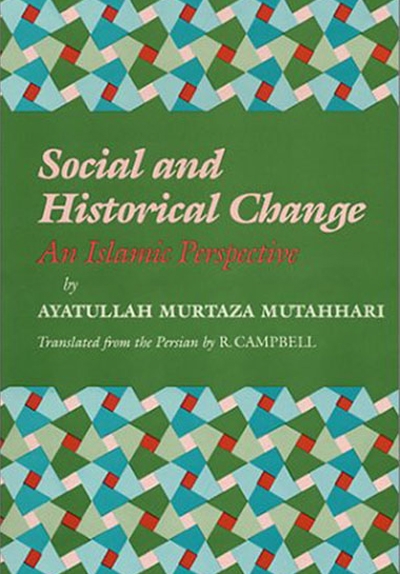



The noble Messenger (saws) was sent not only to inform but also to transform humanity by bringing it out of darkness and into light. Muslims ought to pay attention to this aspect of the Sirah in this month of Rabi al Awwal.
The Qur’an is not a biography of the Prophet Muhammad (pbuh), but Allah (swt) describes His beloved Messenger (pbuh) in the most beautiful terms in the noble Book. He is the “best of exemplars” (33:21), with “the most lofty character” (68:04), and a “mercy to all the worlds” (21:107). He is the one who has “brought glad tidings inviting people to Allah” (33:45) “to bring them out of darkness and into light” (65:11).
وبدا غباء وقصور نظر الجيوب المسلحة خلال الثمانينات والتسعينيات مُثيرًا للتساؤل. إذ كان حجم العنف المرتكب حينها كافيًا جدًا لنقل السلطة من فلكٍ إلى فلكٍ جديد تمامًا، لكنه كان عُنفًا عشوائيًا اعتباطيًا بغير استراتيجيةٍ واضحة، بل تمكَّنت الدولة من توظيفه لدعم سُلطتها الأمنية. كما كان اندماج الإخوان، وغيرهم من المسيَّسين؛ في اللعبة السياسية انبطاحًا عشوائيًا بغير استراتيجية حقيقية، وهو الحضور الذي استخدمته الدولة لدعم شرعيّة نظامها السياسي المهلهل.
الفصل بين النظر والعمل، بالأصل؛ فصلٌ مدرسيٌّ إجرائيّ. لكنّهُ سمتٌ ملازم لكل الأنساق المعرفيّة الوضعيّة؛ سواء تلك التي انبنت أول أمرها على الوحي الإلهي، أو تلك التي طوَّرها الجدل المادّي بتغييب الوحي. ولزوم هذه الخاصيّة للأنساق المعرفيّة الوضعيّة سببه ليس المكوّن البشريّ مُجرّدًا، بل هيمنة المكوِّن الجدلي حتى على الأنساق ذات الأصل التوحيدي، بتطاول الأمد وتزايُد تشقيق المقولات الجدليّة-المذهبيّة من قلب مقولاتٍ بشرية. لكن العامل الأهم في بروز هذه الإمكانيّة وتفاقُم نتائجها هو صدور التصوّرات الوضعية كافة عن أُطرٍ نظريّة افتراضيّة مجرّدة؛
ن الانتصار في معركة قد لا يعني الهزيمة الحقيقية للأعداء، فحين لا تتوفَّر العوامل الحقيقية للنصر؛ يُصبح أي نصرٍ مرحلي عملية تضليل، واستمرار للسير الخطأ، وتماديًا في طريق الوصول إلى الهزيمة الحقيقية. هكذا سار التاريخ في مراحلَ كثيرةٍ من تطوراته؛ كان النصر بداية الهزيمة، وكانت الهزيمة بداية النصر … والتاريخ في دورانه غريب، وهو يُعلمنا أنه لا توجد قاعدة ثابتة للتحول ترتكز على أسس متينة، اللهم إلا قاعدة التغيير من الداخل؛ المرتكِزَة على عقيدة لها جذورها في أعماق النفس، ولها انسجامها مع حركة الكون، ولها صلاحياتها في البقاء، والانتشار، والخلود”. – عبدالحليم عويس؛ دراسة لسقوط ثلاثين دولة إسلامية، دار المختار الإسلامي، 1978.
Muslim political thought seems to have drifted from the teachings of the Qur’an, and the Sunnah and Sirah of the noble Messenger of Allah (s). In Part I of this essay, Zafar Bangash, Director of the Institute of Contemporary Isla-mic Thought, places it back in the Sirah to enable the Islamic movement to transform wayward Muslim societies.
The last few years have been a period of exceptional turbulence in the Muslim world, even by the standards of an Ummah that has become accustomed to the buffets of history during the period of colonialist imperialism. In this extended essay, ZAFAR BANGASH, the Director of the Institute of Contemporary Islamic Thought (ICIT), reflects upon the nature of social change and lessons for Muslims today.
The second paper at the ICIT’s Kalim Siddiqui Memorial Conference on April 23 was given by ICIT Director ZAFAR BANGASH, on a theme central to Dr Kalim’s understanding of the task facing the Islamic movement: the revolutionary method of change for Islamic societies.
There are two distinct but diametrically opposite views competing for dominance in the Muslim world today. The ruling elites, totally subservient to the West, while paying lip service to Islam for fear of their people, promote secularism and the Westernization of society; the Islamic movement insists on the establishment of Islamic values and principles.
Among the topics discussed at the Gulf Cooperation Council (GCC) meeting in Kuwait in December was that of textbook revision...
When, like Kyrgyzstan, you are a small land-locked country in a volatile region, with a poorly-equipped army, you do not engage in battle highly-motivated groups that even mighty Russia is not confident of defeating and that are not targeting you.
Muslim activists are often engaged in heated debate about the model to follow to bring about change in Muslim societies. The best model is, of course, none other than that of the noble Messenger of God, upon whom be peace and blessings.
There is a whole world of differences separated “Islamic revolution” from “revolutionary Islam”; the former expression means a comprehensive process of transformation that is conducted in accordance with Islam but does not exhaust the entire content of Islam, whereas the latter means an Islam reduced to being the instrument of revolution and defined completely in terms of socio-economic processes. Mutahhari was the most articulate defender of “Islamic revolution” against the encroachments of “revolutionary Islam.” The present book is in a sense a document of combat is confirmed by its abrupt ending; Mutahhari was assassinated before he was able to complete it. But the book should be read as more than a record of ideological struggles; it has lasting value as a statement of essential Islamic doctrine on the twin topics of society and history, and thus serves to complement perfectly the first volume of Mutahhari’s writings published by Mizan Press, Fundamentals of Islamic Thought.
1
